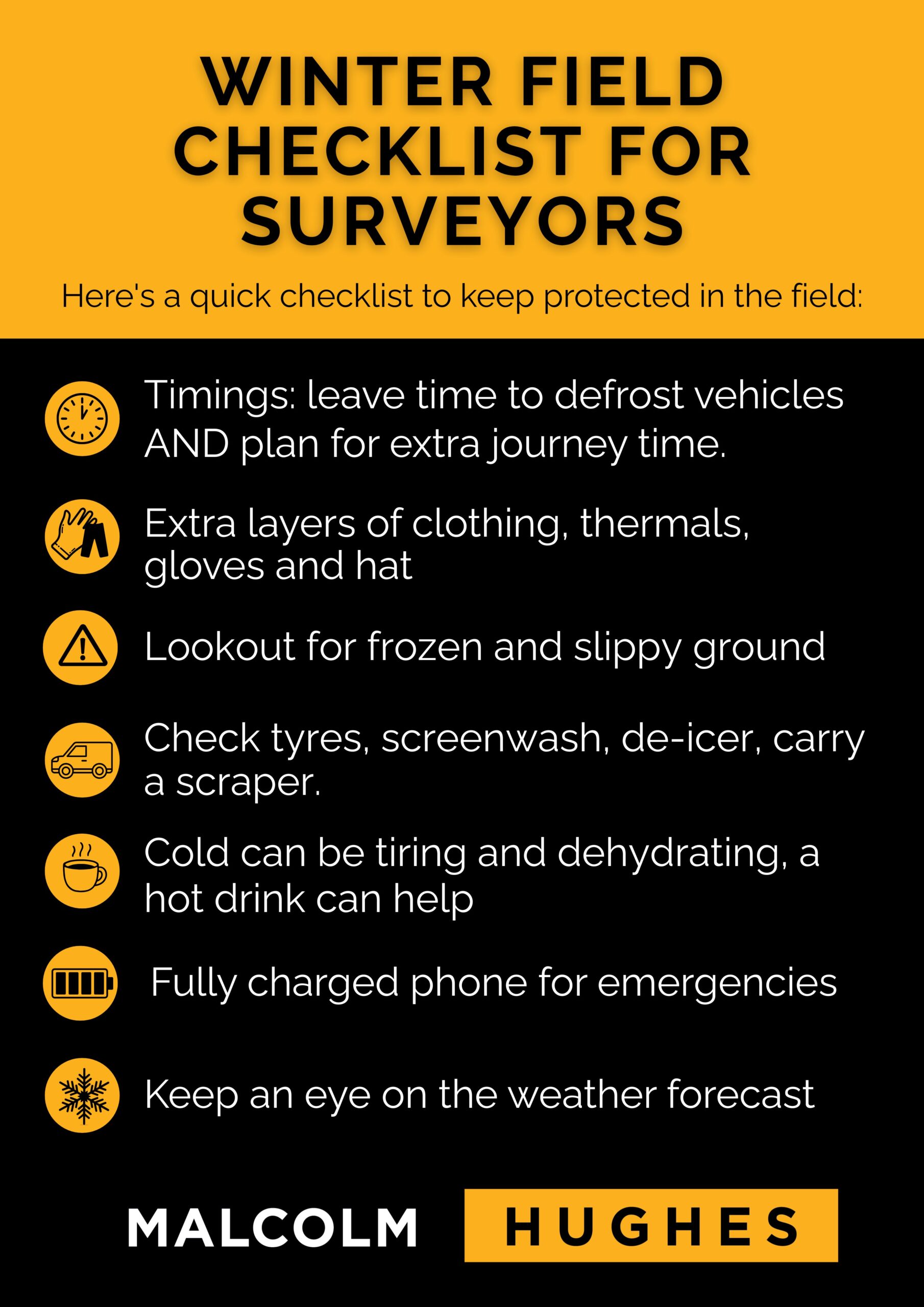Winter Safety in the Field
With the Met Office issuing an amber warning for snow and ice, we’re reminding all colleagues, whether travelling, working on site, or attending the office of the importance of staying safe during winter conditions.
To support this, our SHEQ Manager, Darren Lunn, has issued refreshed winter guidance, along with a simple checklist to help everyone prepare effectively. He has provided the guidance to staff which covers the key areas of consideration for seasonal adverse weather, this includes all the elements to think about before you set off, driving in snow and ice, safety on site, around the office, and staying informed on the go. We have condensed some of his internal information into this handy checklist that covers a few of the key things to think about whether you are heading out on site or for anyone off on a journey.
Key Winter Safety Tips for Surveyors
1. Dress for the Cold Layer up: thermal base layers, insulated outerwear, gloves, and a warm hat. Wear footwear that offers both grip and insulation, icy terrain demands traction.
2. Vehicle Readiness Allow extra time to de-ice and defrost your vehicle before you set off. Use proper screen-wash with antifreeze properties, plain water is prone to freezing. Regularly check tyre tread and pressure, good grip is critical in icy conditions.
3. Plan Your Route Carefully Prioritise major roads: these are more likely to be gritted and safer for travel. Keep your mobile phone fully charged, and make sure you have enough fuel (or charge) in case of delays or diversions.
4. Stay Alert for Hidden Site Hazards Frozen or icy ground can cause slips and falls, especially around footpaths or worksites. Be extra cautious when navigation or working close to edges, slopes, or ungritted surfaces. Use your risk assessment to review conditions proactively, and communicate any concerns with your manager before proceeding.
5. Manage Cold-Related Fatigue The cold can be tiring and dehydrating, carry a hot drink, but don’t forget water too. Take regular breaks, especially when daylight is limited or when working in very low temperatures. If conditions feel unsafe, stop and consult with your supervisor.
6. Keep Communication Strong Always let someone know where you’re going and when you expect to return. Maintain a fully charged mobile phone and check in with your team.
Final Thought: Preparation is everything in winter. With the right mindset, gear, and communication, fieldwork can remain productive, and safe, even when the temperature drops. Stay warm, stay focused, and stay safe out there.
Check the Met Office for updates.





